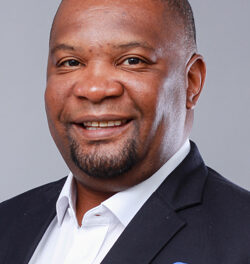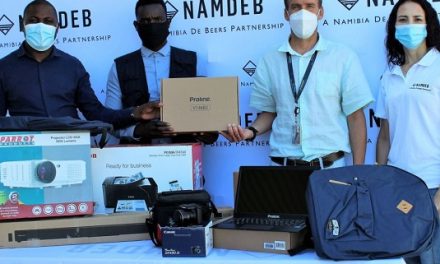
Hearing loss seeks earliest intervention
To mark the end of the project ‘Empowerment through Education’, the EU and the Association for Children with Language, Speech and Hearing Impairments of Namibia (CLaSH) organized two events this month which included the launch of the documentary ‘Joelma’s story’, one of the project beneficiaries as well as an academic seminar on “Early Identification, Early Education and Parents’ Empowerment” forCchildren with Hearing Loss at the Windhoek Country Club.
Speaking at the one day seminar for education, health and rehabilitation professionals, the Deputy Minister of Education, Arts and Culture, Hon Ester Anna Nghipondoka said: “The Ministry of Education will ensure access to appropriate support, such as early childhood intervention and education for children with disabilities and ensure sufficient preparation for them to lead a full and meaningful life in adulthood.”
The seminar was attended by over 80 delegates comprising representatives from regional councils, speech and language therapists, audiologists, social workers, and teachers.
Delegates earned continuous professional development (CPD) points from detailed presentations by eminent academics Professor Claudine Storbeck, the Director of the Centre for Deaf Studies at the University of the Witwatersrand and Speech/Language Therapist and Audiologist, Selvarani Moodley.
Speaking at the closing event and launch of the documentary, the Director of CLaSH, Ms Heide Beinhauer commended the European Union for their sincere commitment to supporting comprehensive strategies which assist the breaking down of barriers for disadvantage children with hearing loss.”
The European Union from 2013 to 2015 supported The Association for Children with Language, Speech and Hearing Impairments of Namibia (CLaSH) to implement a project called “Empowerment through Education”. Over a three years the EU injected approximately N$3 million in the project as part of a 70% co-funding contribution to increase public awareness about hearing loss in children through advocating for early identification, early intervention and the early education of children with hearing loss.
The project was carried out in seven regions: Khomas, Oshikoto, Oshana, Omusati, Ohangwena, Kavango and Zambezi. Nearly 4000 learners were screened for hearing loss and 221 learners were fitted with hearing aids. Most concerning, however, was the consistently high percentage (around 40%) of learners with preventable and/or treatable hearing loss. One of the objectives was to assist parents in target regions to have more information about hearing loss in children and to help them advocate for services for their children. A total of 661 parents were reached through 32 parents meetings. In addition 72 home visits to children with hearing loss under the age of five were carried out in Owamboland. Over 120 nurses were trained in otoscopy, ear wash and hearing screening.
Additionally, nursing lecturers from the University of Namibia and the International University of Management were given refresher courses to improve the level of health training.












































